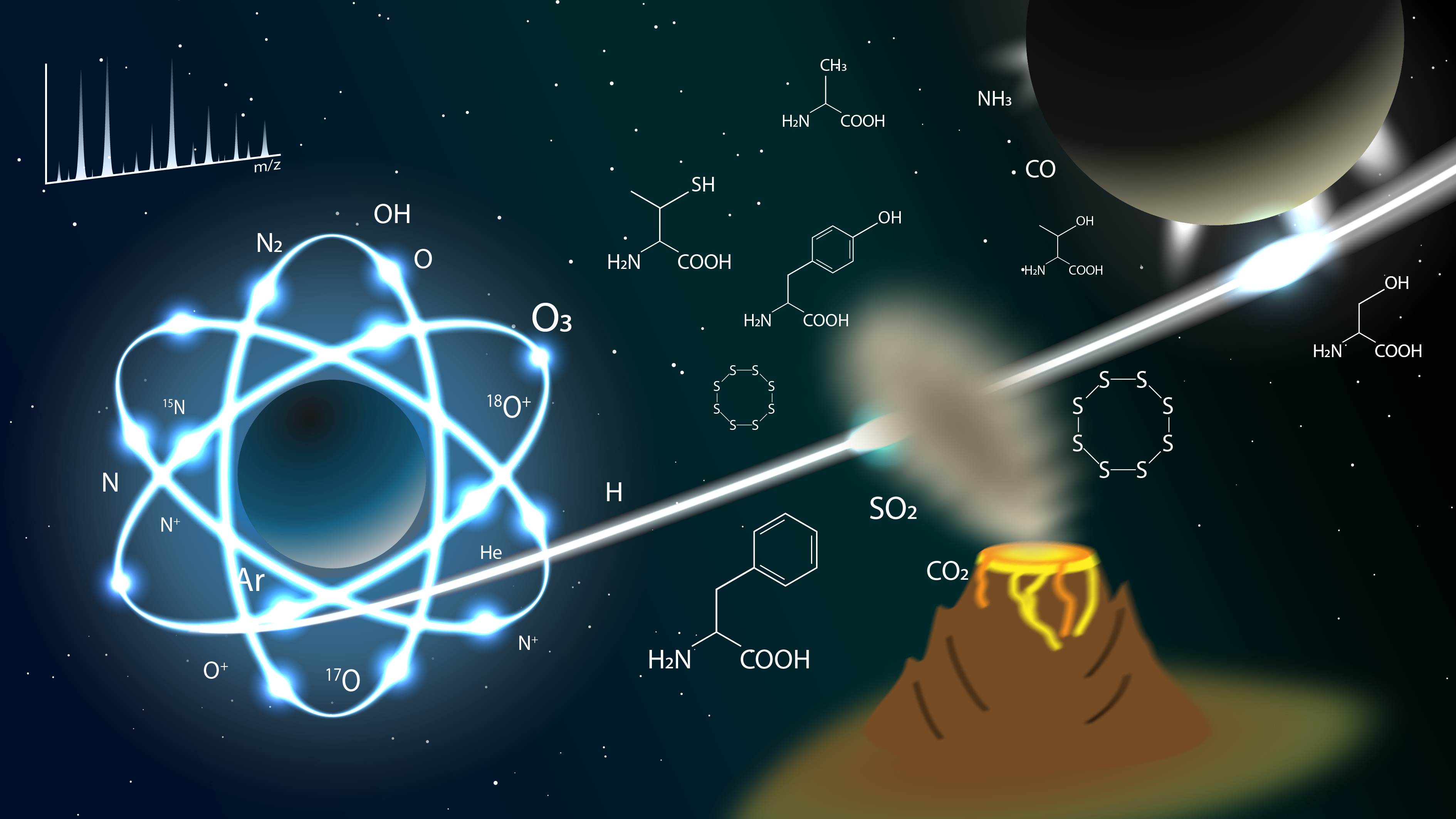The goal of this idea is to provide technology enabling future deep space missions that analyse complex molecules during hypervelocity flybys empowered with mass spectrometers, while establishing an observation network for Earth’s chemical species in the exosphere and commercially use the output of these technological improvements soon. ESA assesses the status of Earth’s atmosphere for both commercial and non-commercial purposes at all altitudes except the upper most part, where latest measurements of the temperature inferred from number densities of chemical species date back to the 1980s [1]. Thus, today’s space weather predictions rely on 40-year-old temperatures contrasting our digitally transformed industry. To fill this gap, the community needs a mission with sensitive instrumentation that unambiguously measures light and heavy molecules at speeds exceeding 7 km/s [2]. Even the flagship mass spectrometer on board ESA’s L-class JUICE mission (NIM) has a speed limit of 5 km/s for this task. We successfully tested a novel ion-optical system [3]. It replaces NIM’s complicated gas inlet by a novel, simple system enabling a direct analysis of the species, without an antechamber or deflection system thus maintaining the chemical nature of species even at flyby speeds of up to 20 km/s. This feature implies the unique possibility for reliable analysis of complex molecules. The proposed idea is to condense NIM [4] to 1 litre of a CubeSat, replace its ion-optical system and perform rigorous testing. This instrument will enable establishing a network of satellites providing chemical composition data in real time. Enclosed in a vacuum system, it will also fit on uncrewed aerial vehicles for unknown gas cloud monitoring (e.g., on volcanoes and upon military attacks), or for disaster control. These applications complement the future goal of establishing a high-performance technology for the detection of complex signatures of life in plumes of celestial objects.

